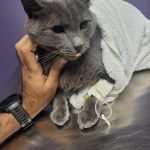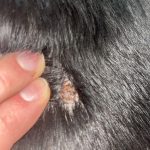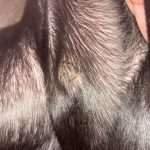Hello,
Well let’s all take a collective moment to applaud the work up!! I say this because that’s a breath of fresh air!! I think that a couple things warrant a little further discussion.
First it sounds like your GP has done a very thorough job,,, but,, done it all in house. Which in some cases is the best we can do. But. Have you been offered a referral to an internal medicine feline practitioner? If you can find someone who is BOTH great. If not go to whoever you can get in with.
Next have rads been done? And assessed by a radiologist? At least for thorax?
I know it might sound crazy but also check anal glands. Some of these older cats are so uncomfortable they stop eating
Add an appetite stimulant. There are numerous options.
Ask for an internal medicine consult via your lab services. It’s a phone call and It’s free. It has been helpful in some cases. Ask them about budesonide vs. prednisolone if you are going to start treating for INS. Which to be honest I would do over a biopsy for a cat this age with these potential differential diagnoses.
I also add vitamin B12 and cobalaquin and immuquin to these guys. The other medication I like is cerenia and learning how to give SQ fluids at home for the kidneys. You also need a phosphate binder ( I think?, please inquire), we use naraquin. Maybe ask about azodyl too.
… and I know it sounds like I am spouting out a lot of meds… but I gave my older cat solensia when she was a nightmare of unhappiness and it really helped.
And let’s not forget pain meds. Every (EVERY!!! ) single patient deserves them. I like gabapentin 50-80 mg as needed.
Please keep m posted. Very best of luck.
Krista.





















Hello,
For cases like this I usually recommend the following.
Ask about diet. See if anything could be influencing water intake. I do a very thorough exam. This includes anal glands. Then I repeat the blood work a few months later (if not drinking or peeing excessively). If the pet is believed to be drinking and urinating more then I think that X-rays, abdominal ultrasound (by a proficient vet) and LDDT are warranted. I don’t have too much preference on order because they usually all need to be done. The biggest thing to talk about before starting all of these diagnostics is that the client must be willing and able to treat for cushings before we start the expensive procedure of diagnostics.
Good luck
thank you so much